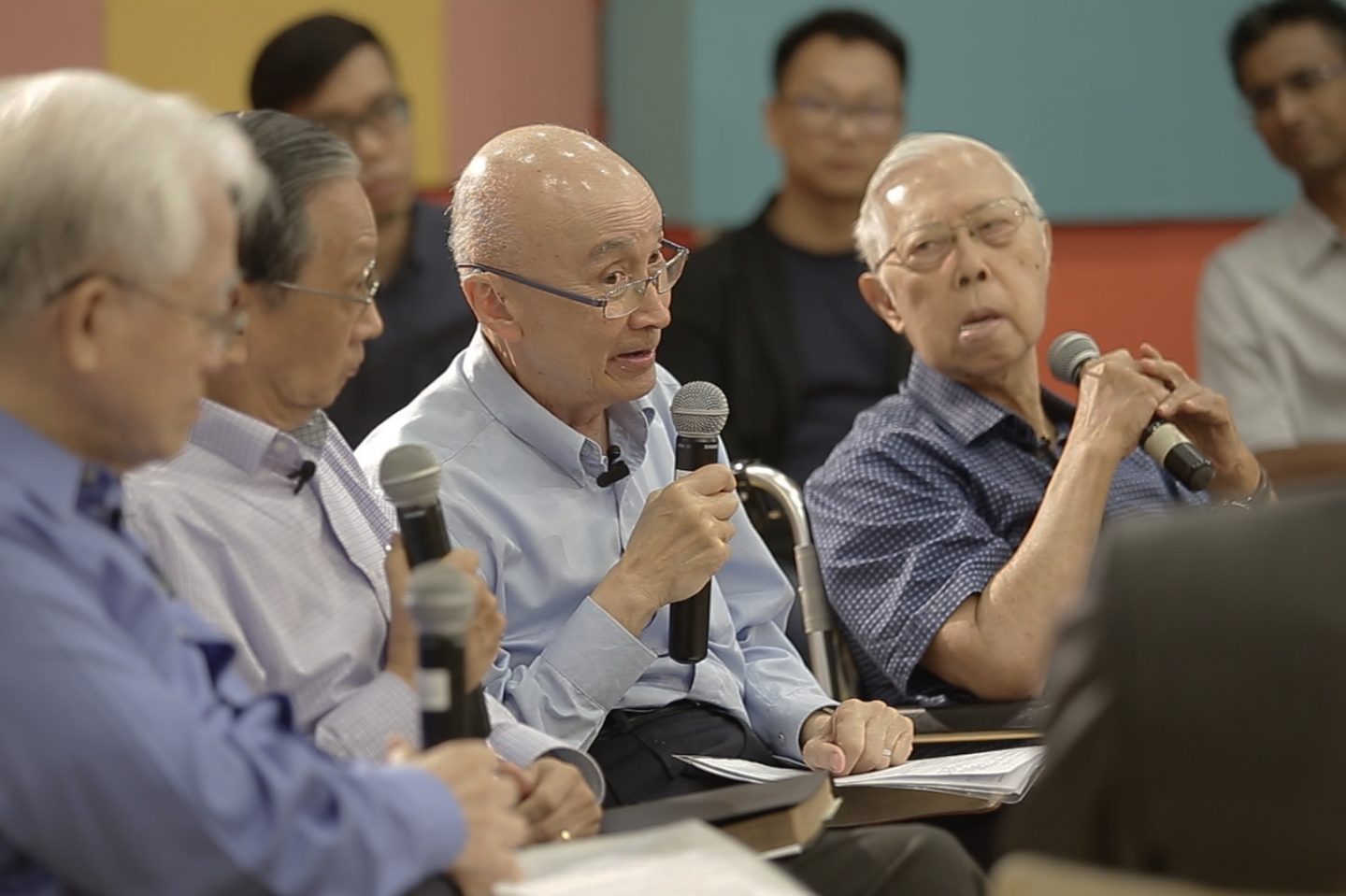Jim Chew was called home to the Lord on Thursday, October 24, 2019. He was 81. The former national director of The Navigators Singapore last served in The Navigators of New Zealand as Asia-Pacific Missions Mentors with his wife, Selene. He passed away after a long battle with lung cancer.
In late 2016, Jim Chew sat down for a wide-ranging interview with Thir.st. In this article, we publish his views on the youth of Singapore.
In John 17, Jesus prayed for the church. He starts with the glory of God, then he prayed for the disciples who were the heart of the church at that time. He prayed for unity that they may be one, and that they’d love one another, and by this all men will know that they are His disciples. Then He prayed for those who believe in Him.
I believe He is still interceding for us now.
The church I grew up in was very fragmented. They’d form organisations and silos with a distinct creed of basic beliefs. Some didn’t believe the Bible, some only believed in a social gospel. So the larger church in Singapore was very divided.
I remember praying with my dad (Dr Benjamin Chew, the chairman of the executive committee when the Billy Graham Crusade came to Singapore in 1978) and some others who felt the tension. We asked God to separate the wheat from the tares and lead us to His heart.
When the Charismatic movement came churches became confused, but godly people handled the chaos. Bishop Chew Ban It – who has just passed away – had a personal experience of tongues and other spiritual gifts.
But because he knew this movement could divide the church, he came up with guidelines for unity: Do we see love, which is a command? Are we in the Word? These can all still be found in Bobby Sng’s book In His Good Time. (Dr Bobby Sng passed away a week before Jim.)
Then came the movement of para-church organisations. I don’t like that term because I feel they are all part of the church. Anyway, Youth For Christ, Varsity Christian Fellowship, Campus Crusade (now Cru), the Navigators did what mainline churches couldn’t do. So the church really grew.
Normally when you see rapid growth, you see division. Thank God that in Singapore, you generally see maturity and cooperation.
We have some problems, but nobody’s sitting in a corner devising ways to outdo their opponents, or stealing members from other churches. Now the church is starting to work hand in hand.
Thank God for some of the pioneers who believed and fought for John 17.
I admire the youth of today – I admire you guys. Your generation is so creative, miles ahead of where I was at your age.
I pray that God will give you guys the wisdom, discernment and maturity to meet people where they are, going head-first into controversial issues, but also inviting people to ask questions and share their experiences. Things like suicide, pornography, tattoos, politics, environmental ethics and experiencing God for themselves.
We must be willing to change our culture when God leads us.
But you must also be real. In addition to just protecting people and preventing harmful things, we need to invite people to see and experience biblical truth. That builds conviction, and until that conviction forms, any sort of transformation is going to be shallow and people are not going to buy into your message.
Therefore we need to connect the dots and refrain from forcefully imposing creeds onto unbelievers. After all, the church took 300 years to figure out the theology of the Trinity. Does it mean that the early disciples didn’t have real faith? It’s important that people work out their faith on their own terms.
I’d also encourage people – especially men – who find it difficult to share things, to come together in their groups and open their hearts. This will help young people wrestle with issues of reality, while supporting one another emotionally and spiritually. Of course, we have talked about how the Gospel is primarily relational. This is the kingdom in practice.
On top of that, the next generation must develop leadership. We need a certain kind of leader, like in Romans 14-15, who are able to be vulnerable and real on top of being managers and teachers. We cannot let activities and programmes take the place of life-on-life fellowship.
Know that whatever you do, you are always part of the church. Your underpinnings have to be strong.
Depend on the Holy Spirit.
Strive for unity.
Focus on character.
Always remember that the church is not a building.
Keep learning from the lessons of the past, but pave the way ahead with God’s vision for your generation.
Refuse to be discouraged.
For people on the fence, wrestling with the truths of the Gospel that seem to be hidden, I encourage you to keep searching with an open heart. May Jesus meet you where you are.
You’ll get there.
To read our other stories from the interview with Jim, see:
The late Jim Chew on how he discovered his call to full-time missions
My mistakes as a young missionary: Former Navigators National Director Jim Chew









